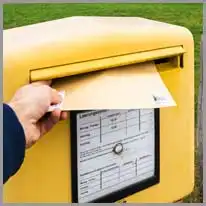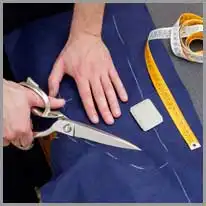Vocabolario
Olandese – Esercizio sui verbi
-
 IT
Italiano
IT
Italiano
-
 AR
Arabo
AR
Arabo
-
 DE
Tedesco
DE
Tedesco
-
 EN
Inglese (US)
EN
Inglese (US)
-
 EN
Inglese (UK)
EN
Inglese (UK)
-
 ES
Spagnolo
ES
Spagnolo
-
 FR
Francese
FR
Francese
-
 IT
Italiano
IT
Italiano
-
 JA
Giapponese
JA
Giapponese
-
 PT
Portoghese (PT)
PT
Portoghese (PT)
-
 PT
Portoghese (BR)
PT
Portoghese (BR)
-
 ZH
Cinese (semplificato)
ZH
Cinese (semplificato)
-
 AD
Adyghe
AD
Adyghe
-
 AF
Afrikaans
AF
Afrikaans
-
 AM
Amarico
AM
Amarico
-
 BE
Bielorusso
BE
Bielorusso
-
 BG
Bulgaro
BG
Bulgaro
-
 BN
Bengalese
BN
Bengalese
-
 BS
Bosniaco
BS
Bosniaco
-
 CA
Catalano
CA
Catalano
-
 CS
Ceco
CS
Ceco
-
 DA
Danese
DA
Danese
-
 EL
Greco
EL
Greco
-
 EO
Esperanto
EO
Esperanto
-
 ET
Estone
ET
Estone
-
 FA
Persiano
FA
Persiano
-
 FI
Finlandese
FI
Finlandese
-
 HE
Ebraico
HE
Ebraico
-
 HI
Hindi
HI
Hindi
-
 HR
Croato
HR
Croato
-
 HU
Ungherese
HU
Ungherese
-
 HY
Armeno
HY
Armeno
-
 ID
Indonesiano
ID
Indonesiano
-
 KA
Georgiano
KA
Georgiano
-
 KK
Kazako
KK
Kazako
-
 KN
Kannada
KN
Kannada
-
 KO
Coreano
KO
Coreano
-
 KU
Curdo (Kurmanji)
KU
Curdo (Kurmanji)
-
 KY
Chirghiso
KY
Chirghiso
-
 LT
Lituano
LT
Lituano
-
 LV
Lettone
LV
Lettone
-
 MK
Macedone
MK
Macedone
-
 MR
Marathi
MR
Marathi
-
 NN
Nynorsk
NN
Nynorsk
-
 NO
Norvegese
NO
Norvegese
-
 PA
Punjabi
PA
Punjabi
-
 PL
Polacco
PL
Polacco
-
 RO
Rumeno
RO
Rumeno
-
 RU
Russo
RU
Russo
-
 SK
Slovacco
SK
Slovacco
-
 SL
Sloveno
SL
Sloveno
-
 SQ
Albanese
SQ
Albanese
-
 SR
Serbo
SR
Serbo
-
 SV
Svedese
SV
Svedese
-
 TA
Tamil
TA
Tamil
-
 TE
Telugu
TE
Telugu
-
 TH
Thai
TH
Thai
-
 TI
Tigrino
TI
Tigrino
-
 TL
Tagalog
TL
Tagalog
-
 TR
Turco
TR
Turco
-
 UK
Ucraino
UK
Ucraino
-
 UR
Urdu
UR
Urdu
-
 VI
Vietnamita
VI
Vietnamita
-
-
 NL
Olandese
NL
Olandese
-
 AR
Arabo
AR
Arabo
-
 DE
Tedesco
DE
Tedesco
-
 EN
Inglese (US)
EN
Inglese (US)
-
 EN
Inglese (UK)
EN
Inglese (UK)
-
 ES
Spagnolo
ES
Spagnolo
-
 FR
Francese
FR
Francese
-
 JA
Giapponese
JA
Giapponese
-
 PT
Portoghese (PT)
PT
Portoghese (PT)
-
 PT
Portoghese (BR)
PT
Portoghese (BR)
-
 ZH
Cinese (semplificato)
ZH
Cinese (semplificato)
-
 AD
Adyghe
AD
Adyghe
-
 AF
Afrikaans
AF
Afrikaans
-
 AM
Amarico
AM
Amarico
-
 BE
Bielorusso
BE
Bielorusso
-
 BG
Bulgaro
BG
Bulgaro
-
 BN
Bengalese
BN
Bengalese
-
 BS
Bosniaco
BS
Bosniaco
-
 CA
Catalano
CA
Catalano
-
 CS
Ceco
CS
Ceco
-
 DA
Danese
DA
Danese
-
 EL
Greco
EL
Greco
-
 EO
Esperanto
EO
Esperanto
-
 ET
Estone
ET
Estone
-
 FA
Persiano
FA
Persiano
-
 FI
Finlandese
FI
Finlandese
-
 HE
Ebraico
HE
Ebraico
-
 HI
Hindi
HI
Hindi
-
 HR
Croato
HR
Croato
-
 HU
Ungherese
HU
Ungherese
-
 HY
Armeno
HY
Armeno
-
 ID
Indonesiano
ID
Indonesiano
-
 KA
Georgiano
KA
Georgiano
-
 KK
Kazako
KK
Kazako
-
 KN
Kannada
KN
Kannada
-
 KO
Coreano
KO
Coreano
-
 KU
Curdo (Kurmanji)
KU
Curdo (Kurmanji)
-
 KY
Chirghiso
KY
Chirghiso
-
 LT
Lituano
LT
Lituano
-
 LV
Lettone
LV
Lettone
-
 MK
Macedone
MK
Macedone
-
 MR
Marathi
MR
Marathi
-
 NL
Olandese
NL
Olandese
-
 NN
Nynorsk
NN
Nynorsk
-
 NO
Norvegese
NO
Norvegese
-
 PA
Punjabi
PA
Punjabi
-
 PL
Polacco
PL
Polacco
-
 RO
Rumeno
RO
Rumeno
-
 RU
Russo
RU
Russo
-
 SK
Slovacco
SK
Slovacco
-
 SL
Sloveno
SL
Sloveno
-
 SQ
Albanese
SQ
Albanese
-
 SR
Serbo
SR
Serbo
-
 SV
Svedese
SV
Svedese
-
 TA
Tamil
TA
Tamil
-
 TE
Telugu
TE
Telugu
-
 TH
Thai
TH
Thai
-
 TI
Tigrino
TI
Tigrino
-
 TL
Tagalog
TL
Tagalog
-
 TR
Turco
TR
Turco
-
 UK
Ucraino
UK
Ucraino
-
 UR
Urdu
UR
Urdu
-
 VI
Vietnamita
VI
Vietnamita
-

verslaan
Hij versloeg zijn tegenstander in tennis.
battere
Ha battuto il suo avversario a tennis.

langskomen
De artsen komen elke dag bij de patiënt langs.
passare
I medici passano dal paziente ogni giorno.

komen
Ik ben blij dat je bent gekomen!
venire
Sono contento che tu sia venuto!

omdraaien
Je moet hier de auto omdraaien.
girarsi
Devi girare la macchina qui.

verwijderen
De vakman heeft de oude tegels verwijderd.
rimuovere
L’artigiano ha rimosso le vecchie piastrelle.

sturen
Hij stuurt een brief.
inviare
Sta inviando una lettera.

duwen
De auto stopte en moest geduwd worden.
spingere
L’auto si è fermata e ha dovuto essere spinta.

moeilijk vinden
Beiden vinden het moeilijk om afscheid te nemen.
trovare difficile
Entrambi trovano difficile dire addio.

kijken
Ze kijkt door een gat.
guardare attraverso
Lei guarda attraverso un buco.

op maat snijden
De stof wordt op maat gesneden.
tagliare
Il tessuto viene tagliato su misura.

nemen
Ze moet veel medicatie nemen.
prendere
Lei deve prendere molti farmaci.

